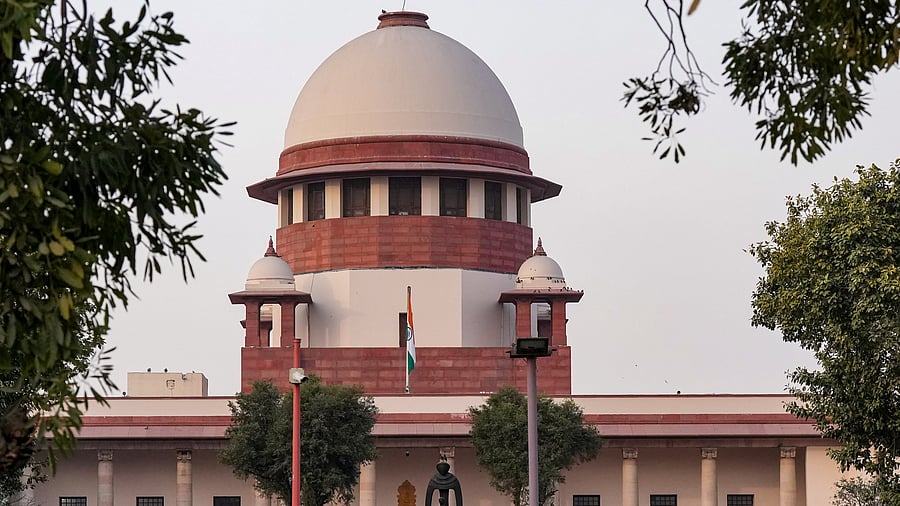
Supreme Court of India
Credit: PTI Photo
New Delhi: The Supreme Court has said consistency in judicial outcomes is the hallmark of a responsible judiciary as inconsistent decisions coming out from different benches shake public trust and reduce litigation to a punter’s game.
A bench of Justices P S Narasimha and Joymalya Bagchi took an exception to the Karnataka High Court's single judge order quashing criminal proceedings in a case of assault and harassment lodged by complainant wife against her husband and others, even though a coordinate bench previously allowed the case to continue.
"Such a decision gives rise to various insidious sharp practices like forum shopping spoiling the clear stream of justice," the bench said, allowing a plea by the wife, Renuka against high court's order of February 16, 2024.
The wife alleged that the husband along with others came to her parental house, assaulted her with slippers and stones and threw chill powder in her eyes, abused her and her relations in filthy language.
The bench said the high court's order suffered from the vice of judicial caprice and arbitrariness and was liable to be set aside also on this score.
"It was incumbent on the judge while quashing the proceeding against the respondent husband to refer to the earlier decision of the co-ordinate bench and distinguish the reasons therein to arrive at a different conclusion. Failure to do so infracts judicial propriety and discipline," Justice Bagchi wrote in April 29 judgment on part of the bench.
The bench said it was inexplicable why there was no reference to the said previous order in the decision quashing proceeding against the respondent-husband.
"The case at hand portrays a disturbing picture. While one judge refused to quash proceeding against the in-laws, inter alia, observing wound certificate demonstrates the appellant was assaulted and suffered simple injuries, another judge quashed the proceeding against respondent husband holding the medical certificate was not consistent with the allegations in the complaint i.e. the wound certificate does not show the injuries were caused by a blunt weapon," the bench said.
The court held the judge erred in law by embarking upon an enquiry with regard to the credibility or otherwise of the allegations in the FIR or the chargesheet.
The judge compared the nature of assault described in the FIR vis-à-vis wound certificate and came to a finding that the allegations are untrue. In doing so, the judge had undertaken a mini trial to quash the proceeding which is impermissible in law, it said.
"We have no hesitation to hold that the allegation of throwing chilli powder and assault on the appellant by respondent-husband and other in-laws is not only supported by the wound certificate which discloses simple injury but also the statement of the neighbour, Suvarna Andri," the bench said.
The court held it was unwarranted for the judge to embark on a mini trial to weigh the ocular version vis-à-vis medical evidence and quash the proceeding.
Whether the ocular evidence is fully incompatible with medical evidence is a matter of trial and cannot be a ground to terminate prosecution at the initial stage, the bench emphasised.
The judge had also observed that it is unclear from the allegations who had perpetrated the assault and the prosecution during the pendency of a matrimonial suit was nothing but an abuse of process of court. These grounds are equally untenable, the bench held.
The court found, the judge also misdirected himself in coming to a finding that the proceeding was malicious and an abuse of the process of court as proceedings were pending before the matrimonial court.
"Offences involving cruelty on wife would invariably arise out of matrimonial disputes. Accordingly, pendency of matrimonial proceeding between the parties cannot per se lead to an inference that institution of criminal proceeding alleging assault supported by medical evidence and independent witness is a product of malice and abuse of court," the bench said.
